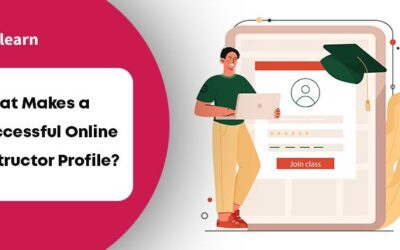How to Interview Tutors for Your Tutoring Company
Tutors are the essence of your tutoring company. If you’re planning to start your tutoring business, you cannot compromise on hiring the right tutors. In fact, the long-term success of your business and academic progress depends on your ability to hire effective tutors.
While you might wonder “how to interview tutors for your tutoring company“, the process need not be stressful! By streamlining your selection process and preparing the right questions for your potential candidates, you could ease your fears of getting it right. Besides, you need to keep an eye on the prevalent tutoring trends and market dynamics.
Follow our advice and key interview questions to hire the best talent! So, grab your pens and note down the important points!
Create Your Ideal Tutor Persona
So, whether you have an existing tutoring business or you’re planning to start one, you need to know what you’re exactly looking for. Creating an ideal tutor persona helps you better identify the required skills and qualifications. A clear understanding of the criteria helps you curate the right interview questions for an effective hiring process.
Here are the essential aspects you’re tutor persona must include:
Understanding with the Subject – You can’t hire a tutor unless they have relevant experience in that field. For example, if you’re hiring an English tutor, they must have a related educational background and a deep understanding of grammar, vocabulary, and writing style.
Expertise with the Specific Age Group – Your tutors need to have a skill set that aligns with your students. For example, the skill sets required for teaching elementary school students are different from those required for high school students. Along with subject expertise, tutors need a blend of communication skills and emotional intelligence.
Teaching Style & Methods – A student-centred teaching style is effective in a collaborative environment. Here, the focus is on students. They take charge of their learning by setting goals, discussing concepts with peers, and demonstrating project-based activities. Tutors should include questions, quizzes, and multimedia presentations to engage students.
Communication Style – Communication skills are a vital skill to look for in tutors. They should have a clear and concise style in both verbal and written communication. Tutors have to cater to students with diverse backgrounds and learning styles. So, a respectful and inclusive tone is preferred.
Availability & Flexibility – Online tutoring demands you to be available for specific working hours for tutoring.
Essential Skills to Look in Tutors
These are the essential skills to look while conducting interviews to hire tutors for a tutoring company:
- Active Listening
- Time Management
- Leadership
- Problem Solving & Critical Thinking
- Adaptability
- Positivity & Empathy
- Tech-Savvy
10 Interview Questions to Ask Tutors
So, how to interview tutors for your tutoring company?
You need to prepare the right interview questions to ensure a candidate is a good fit. This helps to better assess your candidate and get a 360-degree view of your candidate. You can start with general questions and then move on to domain-specific questions.
We have compiled a list of key tutoring questions to ascertain your tutor’s knowledge and skills!
1. Why do you like tutoring? What about tutoring inspires you?
This is an excellent generic question to start your tutoring interview process. Asking your candidates why they started tutoring helps you to find the catalyst for their tutoring journey. This helps to assess how passionate they are about teaching students and the extent to which they will go. This is an important question as you can assess how far your tutors will stick with you.
2. What is your past experience with tutoring?
This question gauges how long your candidate has been teaching. As an interviewer, you can assess their genuine interest and inclination towards teaching. Assess whether tutors have considerable experience in your desired subject and age group. This helps you to decide whether they fit your job description and prove to be a valuable resource.
For example, you’re looking for a special needs math tutor. Expect an answer like:
“I have several years of experience working as a special needs tutor. I have worked as a special education specialist for seven years. I have worked with students diagnosed with ADHD, dyslexia, and autism. My subject of expertise is Mathematics and language learning.”
3. Explain your tutoring style and philosophy.
This is a deeper question that helps you to gain a better understanding of how the candidate demonstrates concepts to students. Here, the tutor is expected to explain the teaching approach and methodologies they employ to explain concepts. You can assess their adaptability to diverse learning styles, problem-solving skills, and core values. You can also expect your candidates to mention their engagement strategies like quizzes, demonstrations, presentations, etc.
4. What grade levels and subjects do you specialize in?
While gauging the years of tutoring demonstrates your passion for teaching. It’s also essential to measure the milestones you have attained in your field. As Maria Montessori rightly states, “The greatest sign of success for a teacher is to say, ‘the children are working as if I did not exist.'”
Assess whether your candidate is equipped with the right tools and pedagogical strategies to engage your ideal students. Ask them about their relevant experience and key achievements with the specific age group.
“I have five years of experience teaching high-school mathematics. My specific areas of expertise are Calculus, Geometry, and AP Statistics. Beyond academics, my skills extend to tools like MS Excel, Desmos, and Geogebra.”
5. How do you explain complex concepts to learners?
Students are curious and inquisitive minds ready to learn new concepts. Tutoring often involves explaining complex concepts in simple words. The candidate’s answer to this question demonstrates their skills and adeptness in teaching and domain. Ask candidates to demonstrate with an example. Look for confidence, subject expertise, and the ability to break down complex concepts.
6. How do you structure your tutoring sessions?
An effective tutoring plan often involves a consistent pattern and schedule. This question assesses the time-management skills of your candidate. Your student’s time is valuable. An ideal tutor should be able to identify the priorities — alpha and beta tasks. For example upcoming exams or guiding on classroom projects. Ensure the tutor incorporates engagement activities like quizzes and ice-breaker sessions.
7. Do you employ any specific tools and strategies while teaching?
Each tutor has a unique teaching style. And there is more than one teaching approach to deliver a dynamic session. Keeping up with online tutoring trends is more important than ever! This question reveals how well tutors can engage students throughout the session and also test their knowledge. For example, some tutors might employ Google Slides, online whiteboards, gamification methods, science kits, or even educational software.
8. How do you handle disinterested students?
Managing student apathy is the true test of a tutor’s skills. The direct consequence of student apathy is reduced academic performance. This question evaluates how well tutors can manage difficult students. Evaluate the creative and age-appropriate teaching strategies that the candidate employs. Tutors should create a positive environment and address the root cause of disengagement.
“A one-size-fits-all approach doesn’t always work in classrooms. I adopt a student-centric approach and tailor my approach to suit learners best. I believe in positive reinforcement and offer the choice to choose the topic for their assignments.”
9. How do you measure a student’s progress?
Tutoring is not just about passing information; it’s about how well learners are able to grasp the concepts. Hence, this question measures this pivotal metric of measuring the student’s academic progress. The candidate should have proven experience employing direct and indirect measures during their sessions. Formative quizzes and summative assessments are the direct measures that ascertain the learning aligns with the outcome.
10. How comfortable are you with using video conferencing tools like Zoom, Google Meet, etc?
The last question is particularly relevant for online tutoring. A modern tutor’s toolbox includes luminescent Zoom sessions, insightful YouTube how-to guides, interactive whiteboards for visual annotations, and more. Assess how comfortable the candidate is navigating through modern technology and tools.
Explain the Interview Process to the Candidate
While structured interviews are a powerful hiring tool, going through the extensive process could be stressful! Explaining the interview process calms the nerves and makes the tutors give their best possible! The pressure to make a first impression further makes it more nerve-racking.
Start by giving a brief introduction of yourself, your past experience, and your tutoring company. Make the entire process appear fair and just, this helps to easily compare two tutors and avoid any unwanted bias. This also makes the interviewer compare the responses and decide which candidate is a better fit for your company.
With a better understanding of the tutor company, the candidates can tailor their answers and give their best! Moreover, it makes the entire process transparent and more efficient.
Developing Consistent Scorecard
The interview scoreboard is an important part of the structured interview process. It is prepared based on fixed competencies and skills essential for the role. For example, the scorecard could include interpersonal skills, experience, proficiency with modern technology and tools, problem-solving skills, etc.
The scorecard is a powerful tool that helps in creating a more objective rating system and remember each candidate’s response better. This is essential if there are multiple candidates for the interview. In the end, your scorecard could have a raw score, overall rating, and a final recommendation (yes or no) for the candidate.
Invite Interview Questions From the Interviewee
And you cannot wrap up the interview without questions from the candidate. While an interview is an opportunity to evaluate candidates, it’s also a chance for the latter to see if the role matches their expectations. During the interview, candidates can gauge whether the role is what they are actually seeking!
As an interviewer, you can expect questions related to your job responsibilities, pay, working hours, etc. Here, the candidates can assess the company’s culture and determine its growth. On the other hand, you can assess how curious and equipped the candidate is to join your company.
Post-Interview Activities: Review, Background Checks, Payment Negotiation, and Onboarding
Now, comes the last phase: review and candidate selection. The post-interview process is quite important as your decisive step might impact your tutoring company.
These are the key aspects involved in the post-interview stage:
The final review: Evaluate each candidate’s strengths and skills before choosing the right candidate. You can also arrange mock demonstration sessions to compare their teaching skills. Besides, also evaluate their experience, teaching philosophy, classroom management, and assessment for a 360-degree evaluation.
Background Checks: Perform a criminal background check to avoid any possible risks later. If you find any discrepancies, immediately terminate the further interview process.
Compensation negotiation: Pay negotiations are an important part of the interview process. While the candidates will try their best to win attractive packages, you need to have a pre-fixed figure based on the role.
Onboarding: A smooth transition process goes a long way to create a positive impression about your company. Automate your onboarding process and explain your customer journey — booking software to reviews or testimonial systems. You can develop a welcome or comprehensive onboarding FAQ pack to cover all the essentials.
Well we have covered all the important aspects on how to interview tutors for a tutoring business.
Conclusion
Hiring the right tutors is essential for the success of your tutoring business. To streamline your interview process, plan your interview process well in advance. Finalize your core competencies and skills required for the role. Curate all the interview questions and expected answers to speed up the interview process. Most importantly, ensure that the entire process is unbiased and fair using a scorecard.
Your choices matter and directly influence the growth of your tutoring business! So, have you found the right fit?
FAQ-Related to How to Interview Tutors for a Tutoring Company
1. What qualifications & soft skills should I look for while interviewing tutors?
Excellent communication skills, problem-solving, adaptability, leadership skills, and time management are essential skills to hire the right tutors.
2. What are the red flags to look for while hiring tutors?
Poor communication skills, lack of subject expertise or teaching experience, aggressiveness, and less flexible schedule are a few of the red flags for hiring tutors.
3. How can I evaluate a tutor’s professionalism and reliability?
Qualifications and experience are vital factors to assess reliability. Consider factors like punctuality, structured lesson plans, communication skills, and adaptability to learning styles during demonstrations. Don’t forget reference checks from their previous peers on parameters like performance, character, and meeting deadlines.
4. Should you keep a demo session for tutors?
Yes, evaluating tutors based on demo sessions helps you hire a better candidate. You can evaluate the candidates based on their teaching skills like classroom management, lesson planning, and ability to engage students.





